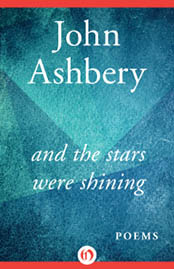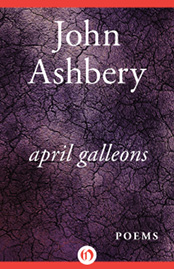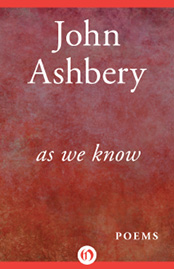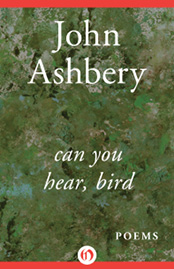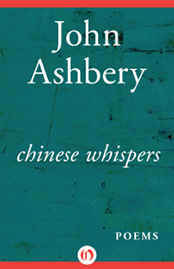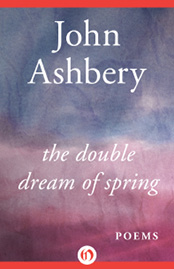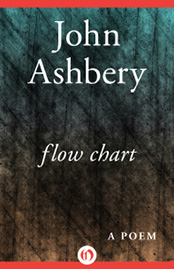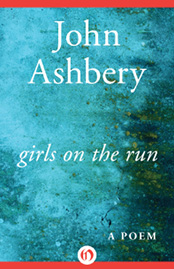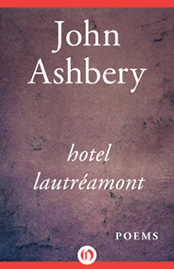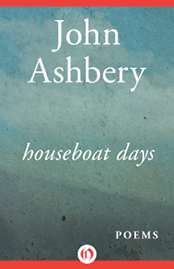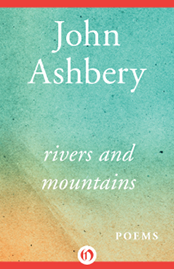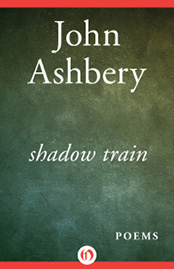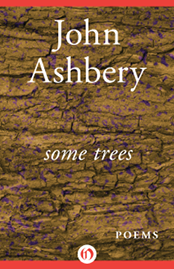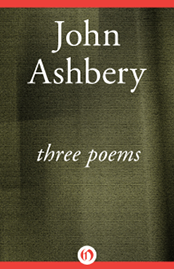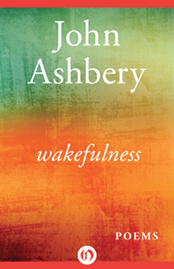The Double Dream of Spring (9 page)
Read The Double Dream of Spring Online
Authors: John Ashbery

Of that song was to be consumed, corrosive;
A surprise dragging the signs
Of no peace after it, into the disquiet of early accidents.
The head notwithstanding. A narrow strip of land
Coinciding with the riders to where
Illusion mattered no more than the rest. Flat
Walls only surrounding only abating memory.
On this new area ideas kept the same
Distance, with profiles spent into the sparse
Immediacy of excavation, land and gulls to be explored.
It was time to compare all past sets of impressions
Slowly peeling these away so that the mastered
Impression of servitude and barbarism might shrink to allegorical human width.
A moment of addition, then one hidden look
At it all, but it is scattered, not the outline
Of your famous openness, but kind of the sleeves
In the weather time after the doubtful present saluted.
All that ever came of it was words
To indicate any kind of barrier, with the land
Lasting beyond hope or scruple, both cell and vortex.
Further on it is a forest of mud pillars. Determined
To live, so that you and your possessions
May be dealt with at last, you forgot the other previous station.
If there was no truth in it, only pleasure
In the telling, might not others set out
Across impossible oceans with this word whose power
Was the opposite reverence to secret deities
Of shame? Or absent-mindedness? Because the first memory
Now, like patches, was worn, only as the inadequate
Memento of all that was never going to be? Its
Allusion not even blasphemous, but truly insignificant
Beside that lake opening out broader than the sun!
This, then, was indifference: it was what it always had been.
The boat stood hieratically still
On the unread page of water. No moon punching
With ideas of the majesty of crowds. A universal infamy
Became the element of living, a breath
Beyond telling, because forgetful of the
Chaos whose expectancy had engendered it, and so on, through
Popular speech down to the externals of present
Continuing—incomplete, good-natured pictures that
Flatter us even when forgotten with dwarf speculations
About the insane, invigorating whole they don’t represent.
The victims were chosen through lightness in obscurity.
A firm look of the land, old dismissals
And the affair was concluded in snow and also in
The satisfaction of the outline formulated against the sky.
People were delighted getting up in the morning
With the density that for once seemed the promise
Of everything forgotten, and the well-being
Grew, at the expense of whoever lay dying
In a small room watched only by the progression
Of hours in the tight new agreement.
And they now too seem invaded, though before it was
The dancers who anticipated making unnecessary
The curtailment of one to the other. And yet,
As though this were strict premonition, their chance
Is cancelled out by earlier claims, a victim perhaps
Of its earnestness. The dance continues, but darker, and
As if in a sudden lack of air. And as one figure
Supplants another, and dies, so the postulate of each
Tires the shuffling floor with slogans, present
Complements mindful of our absorbing interest.
One swallow does not make a summer, but are
What’s called an opposite: a whole of raveling discontent,
The sum of all that will ever be deciphered
On this side of that vast drop of water.
They let you sleep without pain, having all that
Not in the lesson, not in the special way of telling
But back to one side of life, not especially
Immune to it, in the secret of what goes on:
The words sung in the next room are unavoidable
But their passionate intelligence will be studied in you.
But what could I make of this? Glaze
Of many identical foreclosures wrested from
The operative hand, like a judgment but still
The atmosphere of seeing? That two people could
Collide in this dusk means that the time of
Shapelessly foraging had come undone: the space was
Magnificent and dry. On flat evenings
In the months ahead, she would remember that that
Anomaly had spoken to her, words like disjointed beaches
Brown under the advancing signs of the air.
John Ashbery was born in 1927 in Rochester, New York, and grew up on a farm near Lake Ontario. He studied English at Harvard and at Columbia, and along with his friends Frank O’Hara and Kenneth Koch, he became a leading voice in what came to be called the New York School of poets. Ashbery’s poetry collection
Some Trees
was selected by W. H. Auden as the winner of the Yale Series of Younger Poets prize in 1955—the first of over twenty-five critically admired works Ashbery has published in a career spanning more than six decades. His book
Self-Portrait in a Convex Mirror
(1975) received the Pulitzer Prize for Poetry, the National Book Critics Circle Award, and the National Book Award, and since then Ashbery has been the recipient of a MacArthur Fellowship, a National Humanities Medal, the Ruth Lilly Poetry Prize, and a Gold Medal for Poetry from the American Academy of Arts and Letters, among other honors.
For years, Ashbery taught creative writing at Brooklyn College and Bard College in New York, working with students and codirecting MFA programs while continuing to write and publish award-winning collections of poetry—all marked by his signature philosophical wit, ardent honesty, and polyphonic explorations of modern language. His most recent book of poems is
Quick Question
, published in 2012. He lives in New York.
All rights reserved, including without limitation the right to reproduce this ebook or any portion thereof in any form or by any means, whether electronic or mechanical, now known or hereinafter invented, without the express written permission of the publisher.
Copyright © 1997 by John Ashbery
Cover design by Mimi Bark
978-1-4804-5918-2
This edition published in 2014 by Open Road Integrated Media, Inc.
345 Hudson Street
New York, NY 10014

FROM OPEN ROAD MEDIA
